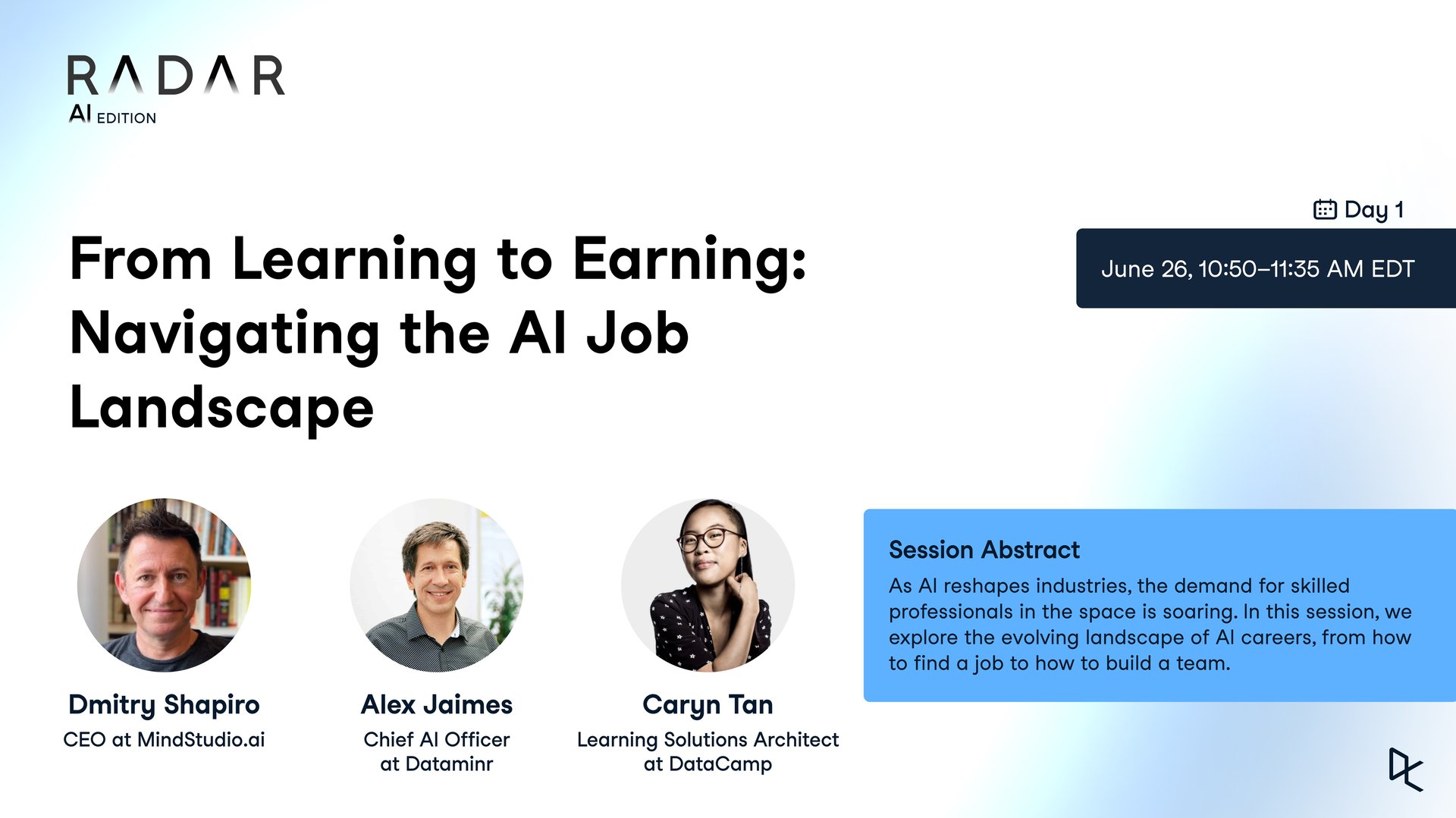Saltar al contenido principalMás información





Altavoces
¿Entrenar a 2 o más personas?
Obtenga acceso de su equipo a la biblioteca completa de DataCamp, con informes centralizados, tareas, proyectos y másRelacionado
webinar
Designing An Effective AI Literacy Strategy: A How-to Guide for Leaders
Alex Jaimes, CAIO at Dataminr, and Doug Laney, Innovation Fellow at West Monroe, teach you how to develop a strategy to enable all your employees to become AI literate.webinar
Designing An Effective AI Literacy Strategy: A How-to Guide for Leaders
Alex Jaimes, CAIO at Dataminr, and Doug Laney, Innovation Fellow at West Monroe, teach you how to develop a strategy to enable all your employees to become AI literate.webinar
Expert Sessions: How to Break into AI in 2024
In this webinar, Sadie St. Lawrence, Chief AI Officer at SSL Innovations and Founder of Women in Data, will provide an in-depth exploration of best practices for breaking into AI in 2024.webinar
Building AI Literacy Programs for Busy Frontline Workers
Caryn Tan, a Learning Solutions Architect at DataCamp, teaches you how to set up a data and AI literacy training program that scales for different learning appetites and schedules.webinar
Increasing Your Organization's Data & AI Maturity
John Thompson, the Head of AI at EY, and Robin Sutara, a Field Chief Data Strategy Officer at Databricks, teach you how to assess your data and AI maturity, and how to improve it.webinar
Revolutionizing Learning: Exploring the Future of Upskilling with AI
Join us as the panel of AI and education experts discuss how to work with generative AI to upskill employees and improve corporate training programs.Join 5000+ companies and 80% of the Fortune 1000 who use DataCamp to upskill their teams.
Loved by thousands of companies



